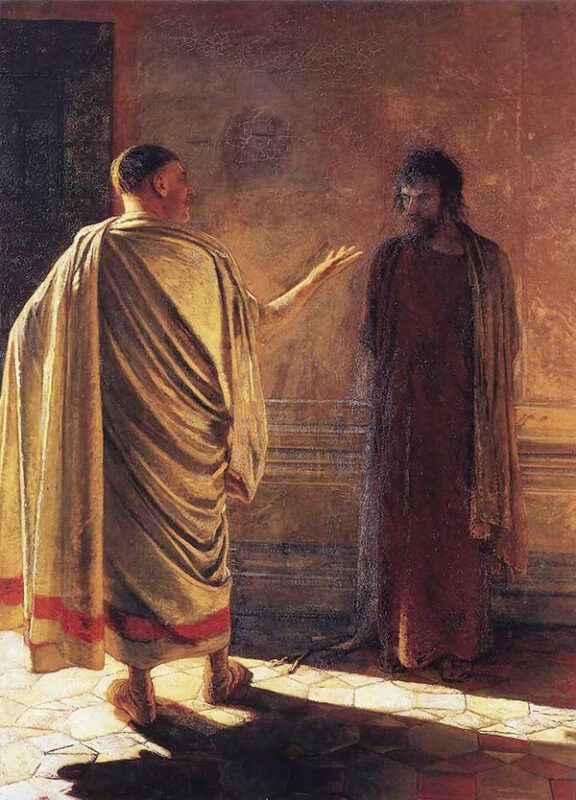Dr. Jean-Pierre Fortin is Assistant Professor of Practical Theology in the Faculty of Theology. Dr. Fortin teaches the Theology of Ministry and Reflection Seminar classes and also oversees field placements, an essential aspect of the Master of Divinity and Master of Religious Education programs at the Faculty. His research includes work in ecumenical dialogue.
Challenging Our Usual Ways of Living
According to the Gospel of John, when Jesus is brought before Pontius Pilate, he tells the Roman governor: “For this I was born, and for this I came into the world, to testify to the truth. Everyone who belongs to the truth listens to my voice” (John 18:37, NRSV). Jesus was born, came among us to bear witness to the truth. For Christians, who profess to be followers of Jesus, a fundamental task and challenge is to bear witness to Jesus. As it invites us to experience and celebrate the mystery of Christ’s Passion, death and resurrection in particular fashion, the Lenten/Easter season is a most suited time for us to reflect on the quality of the witness we bear to Christ.
The current COVID-19 pandemic has so challenged our usual ways of living, relating to, and serving one another that we are summoned to be creative and devise new ways of being faithful disciples of Christ. What does it mean to bear witness to Christ, celebrate and give praise to him in times of social distancing and isolation? How is the truth about the human condition (flaws and blessings) unveiled when humankind is confronted with challenges such as a global viral pandemic?
The recent closing of the USMC campus and the transfer of courses to online platforms have enabled me to witness both the turmoil that such a sudden change creates: administrators, professors, staff and students struggling to learn how to give/take courses, hold/participate in meetings, and host all sorts of academic activities online. The cancellation or postponing of so many public events, lectures, conferences, liturgies—even pub nights—led me to perceive that this year’s Lenten season would in a very real sense last much longer than 40 days. The extent of the transformation to which my working environment was being subjected fully came home when I realized I no longer had access to campus libraries and my office. At the same time, I have also witnessed how instructors and students have managed to break through technological walls to recreate communities of learning that enable insightful reflection and sharing.
In a time such as this, when we are likely to feel deeply unsettled, inadequately equipped, and summoned to take initiative and exercise leadership in unprecedented ways, we may relate to Pontius Pilate, who admits to being profoundly challenged by the person and words of Jesus when he responds to his testimony with an honest question: “What is truth?” (John 18:38) Pilate opens himself to the fact that he is encountering a reality he did not foresee. This encounter with truth in person may alter who he is in profound ways.
During this Holy Week and the following Easter season, then, as we face the COVID-19 pandemic, we may reflect on the ways Jesus questions our assumptions about our usual way of living and following him. We may also think about the questions we have been carrying with us for some time (perhaps a long time) which we know we should ask to Jesus in person. What are the questions that would liberate us, allowing us to pursue the truth revealed in Jesus in more faithful, complete fashion—especially now, in challenging times? We may bring these questions before Jesus in our prayer, with the desire and hope of being transformed so as to be able to bear witness to the truth that he is in and for times such as these.
Read other InsightOut posts.

